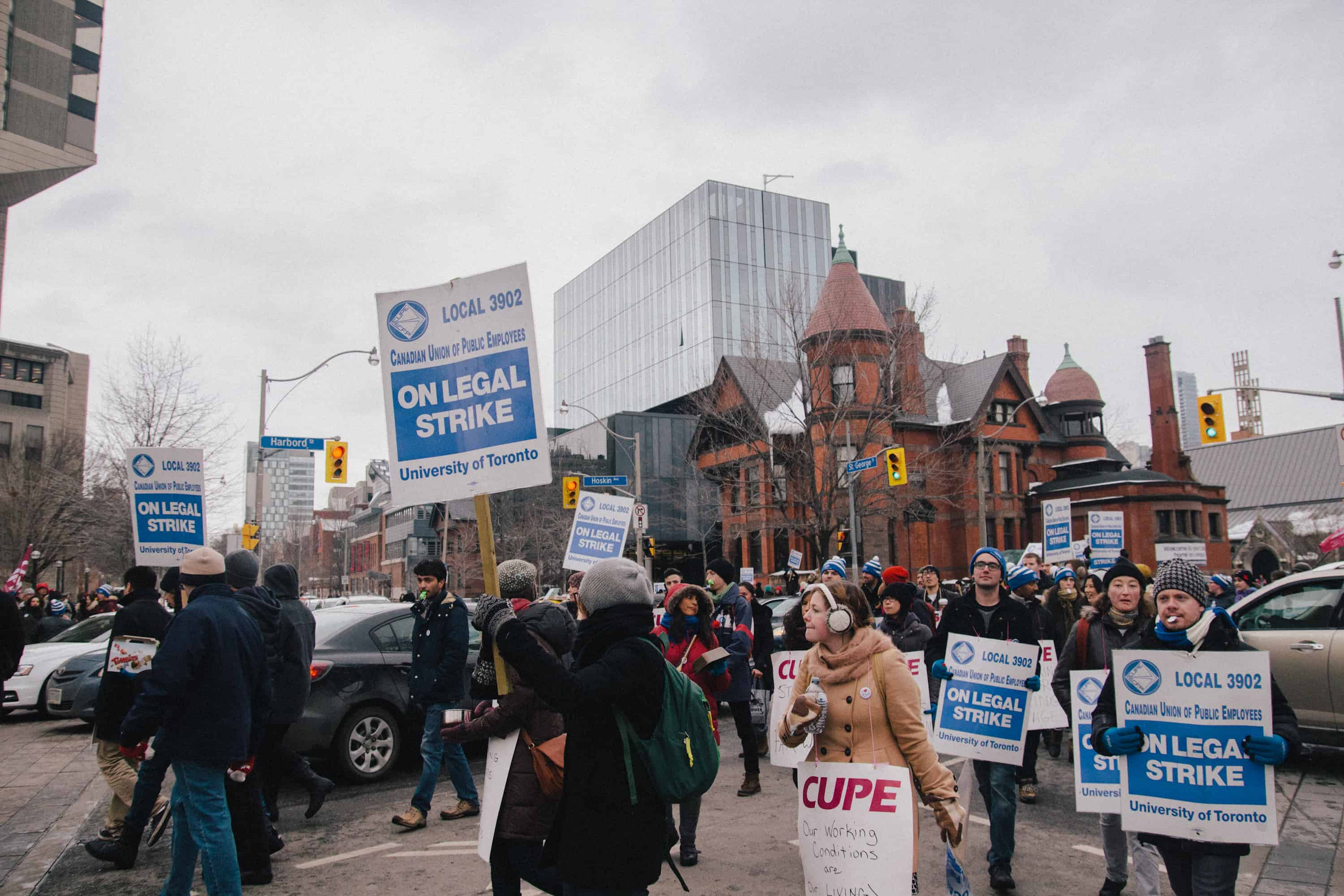Contract academic workers, called sessional lecturers, may go on strike if a successful contract deal with the university is not made soon.
On November 22, the Canadian Union of Public Employees (CUPE) Local 3902, Unit 3 obtained a positive strike mandate, with union members voting 91% in favour of strike action at U of T. This does not mean that the union will go on strike; rather, it gives the union bargaining committee leverage against the employer, the university, after four months of unsuccessful negotiations.
CUPE 3902 Chair Pamela Arancibia told The Varsity that the strike vote reinforces that the members “want and deserve stability in their lives, and they want the Employer to be part of the solution in dealing with these systemic issues.”
Unit 3 represents contract workers, which include non-student sessional lecturers, writing instructors, and music professionals across all three U of T campuses who hold contract terms of less than a year. The unit includes 1,200 employees. According to the organization, they deliver 20 per cent of all undergraduate teaching. The vote was held from November 16 to 22.
The union has been in discussions and meetings with university administrators and officials since the summer, but remain deadlocked on certain issues after four months. While receiving clear gains in terms of wage increases, talks are frozen on the topic of precarious employment. Union officials demand that workers get a pathway to permanent employment, as the present system provides little job security.
A statement on U of T News published on November 16 reveals that there remain some serious barriers to a deal. According to Kelly Hannah-Moffat, U of T’s Vice President, Human Resources and Equity, the union’s “conversion” proposals related to getting rid of precarious employment are “unacceptable” and “fundamentally inconsistent” with the long-standing hiring process. The conversion proposal from the union would guarantee that eight sessional instructors would be “converted” each year to full-time teaching positions.
Hannah-Moffat told The Varsity that the university “has been and remains focused on the best interests of its students in the context of achieving a renewal collective agreement with the union representing this very important employee group.”
“We strike as a last resort, when all the options for making progress on important issues have been exhausted,” Arancibia said. “Students need to realise that this is a fight for the quality of their education. Academic workers who are not commuting from campus to campus or from town to town to make ends meet, who aren’t stressing out about getting their next contract, are going to be better able to turn their attention to teaching and research.”
Mathias Memmel, President of the University of Toronto Students’ Union, said that he is not surprised by the result.
“In the likely event that there’s a strike next term, our priority will be supporting undergraduate students, particularly in ensuring that they don’t suffer academically as a result of the disruption,” Memmel said. “However, both sides should do whatever they can to avoid a strike.”
The strike vote comes a few days after the Ontario college faculty strike ended after five weeks with provincial back-to-work legislation. The current situation is reminiscent of the CUPE 3902, Unit 1 strike at U of T, which saw TAs off work for almost a month in 2015.
The current collective agreement with Unit 3, struck up September 1, 2014, expired August 31 of this year, but was temporarily extended since the union brought in amendments. Bargaining negotiations will resume on November 24.
We do 20% of the teaching, for roughly 1% of the University’s operating budget. I’ve been at the University of Toronto Mississauga for 3 years, and every semester I have no idea what my job situation will look like in 4 months. https://t.co/m7kiYgLUfK
— DrJoKaZooie (@DanjoKaz00ie) November 23, 2017


